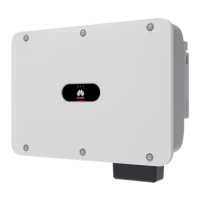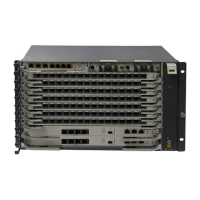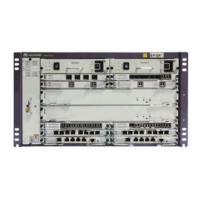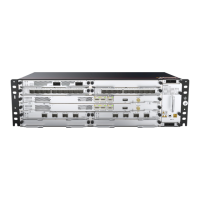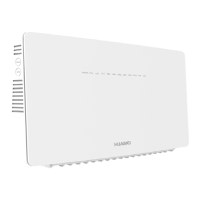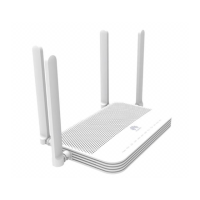Installation at Heights
Working at heights refers to operations that are performed at least 2 meters
above the ground.
Do not at heights in any of the following situations:
● Rainwater remains on steel pipes or other risky conditions exist. After the
preceding conditions no longer exist, the safety director and relevant technical
personnel need to check the involved equipment. Operators can begin
working only after obtaining consent.
● When working at heights, comply with local relevant laws and regulations.
● Only trained and
qualied personnel are allowed to work at heights.
● Before working at heights, check the climbing tools and safety gears such as
safety helmets, safety belts, ladders, springboards, scaolding, and lifting
equipment. If they do not meet the requirements, take corrective measures or
disallow working at heights.
● Wear personal protective equipment such as the safety helmet and safety belt
or waist rope and fasten it to a solid structure. Do not mount it on an
insecure moveable object or metal object with sharp edges. Make sure that
the hooks will not slide
o.
● Set a restricted area and eye-catching signs for working at heights to warn
away irrelevant personnel.
● Carry the operation machinery and tools properly to prevent them from falling
o and causing injuries.
● Personnel involving working at heights are not allowed to throw objects from
the height to the ground, or vice versa. Objects should be transported by tough
slings, hanging baskets, highline trolleys, or cranes.
● Do not perform operations on the upper and lower layers at the same time. If
unavoidable, install a dedicated protective shelter between the upper and lower
layers or take other protective measures. Do not pile up tools or materials on
the upper layer.
● Ensure that guard rails and warning signs are set at the edges and openings of
the area involving working at heights to prevent falls.
● Do not pile up
scaolding, springboards, or other sundries on the ground under
the area involving working at heights. Do not allow people to stay or pass
under the area involving working at heights.
● Inspect the
scaolding, springboards, and workbenches used for working at
heights in advance to ensure that their structures are solid and not overloaded.
● Dismantle the
scaolding from top down after nishing the job. Do not
dismantle the upper and lower layers at the same time. When removing a part,
ensure that other parts will not collapse.
● Do not loiter when working at heights. Do not sleep at heights.
MTS9300A Telecom Power (Claro, Colombia,
MTS9304A-AM10A1)
Installation Guide 1 Safety Precautions
Issue 01 (2021-05-30) Copyright © Huawei Technologies Co., Ltd. 8
